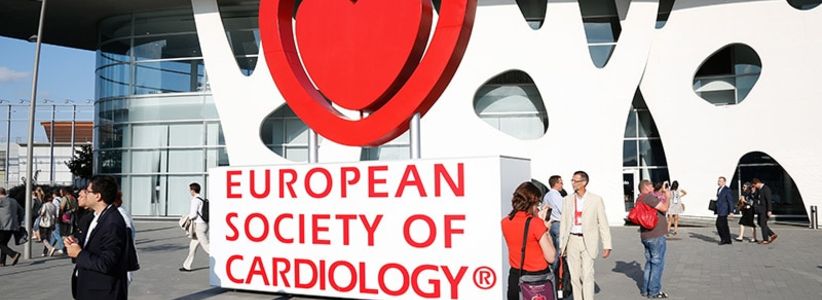NHS Research Scotland Champion to present and chair sessions at gathering of world’s leading cardiology experts

22nd August 2024
A senior figure within NHS Research Scotland (NRS) will be both presenting and chairing during a busy long weekend at the European Society of Cardiology (ESC) Congress taking place this month
Commencing on Friday 30 August, the four-day hybrid event at the ExCeL venue in London Docklands will see NRS Cardiovascular Network Champion Lis Neubeck presenting in two sessions:
- 2024 update on Core Curriculum for Cardiovascular Nurses and Allied Professionals from 11-12pm on Saturday 31 August with her own focus being The Core Curriculum for Cardiovascular Nurses and Allied Professionals: what is it and why do we need it?
- Help or hindrance: ChatGPT and chatbots? from 11-12pm on Monday 2 September in which Lis will be presenting on the subject of Only seven minutes per patient: could chatbots enhance patient consultations?
She will also be helping to facilitate a series of forward-thinking presentations by chairing:
- An Innovations in digital care and patient engagement spotlight on Friday 30 August from 1.15-2.15pm
- Enhancing personalised cardiovascular care with artificial intelligence on Monday 2 September from 8.15-9.45am
The congress is themed around Personalising Cardiovascular Care – a topic which the organisers say is “devoted to empowering patients through tailored treatments to improve outcomes, reduce risk, and redefine the standard of care”.
The event is encouraging attendees to “delve into ground-breaking research, learn about practice-chancing science and experience unmissable networking opportunities to drive your career forward and shape the future of cardiovascular medicine”.
A pioneer in Scottish research and recent recipient of the Outstanding Achievement Award at the RCN Scotland Nurse of the Year Awards, Lis said: “I’m delighted to have the opportunity of attending the ESC Congress and to have been invited to both present and chair during sessions which very much align with my own work and interests.
“It’s a real honour and I’m immensely proud to be showcasing and discussing the breadth of Scotland’s knowledge and expertise during an important, high-profile gathering.
“The event aims to advance the field through ground-breaking research, pioneering technologies, and collaborative initiatives, which I could not be more supportive of, so I’m also excited by the prospect of gaining a greater insight into what might be around the corner and how that could translate to improvements in Scottish care.”
The congress theme of personalised cardiovascular care represents the patient outcome of precision medicine – offering the right treatment to the right patient at the right time. The potential in cardiovascular medicine applies to all stages of disease development and includes risk prediction, preventative measures, and targeted therapeutic approaches.
Professor of Cardiovascular Health at Edinburgh Napier University, Lis added: “It’s a theme that is extremely important across healthcare, offering vast potential to unlock a whole new world of possibilities, including the role of genetics and clinical markers in prediction, prevention, and intervention.
“I’m passionate about our research priorities being patient-centred in order to better unlock those predictive and preventative possibilities. Creating a research positive culture can overcome the barriers of patients accessing clinical trials.
“I firmly believe that patient and public involvement (PPI) in clinical trials helps to increase recruitment and retention to studies and thus we need to prioritise PPI to enhance cardiovascular disease research in Scotland and to improve the lives of people living with it.
“The ESC Congress could be instrumental in advancing the worldwide goal for realising true precision medicine with patient engagement a major driver of that ambition.”
The NRS Cardiovascular Network supports the delivery of high-quality clinical research. It helps to manage participant recruitment to time and target, both for studies which are led from Scotland, and studies led from other nations which Scottish sites are participating in.

